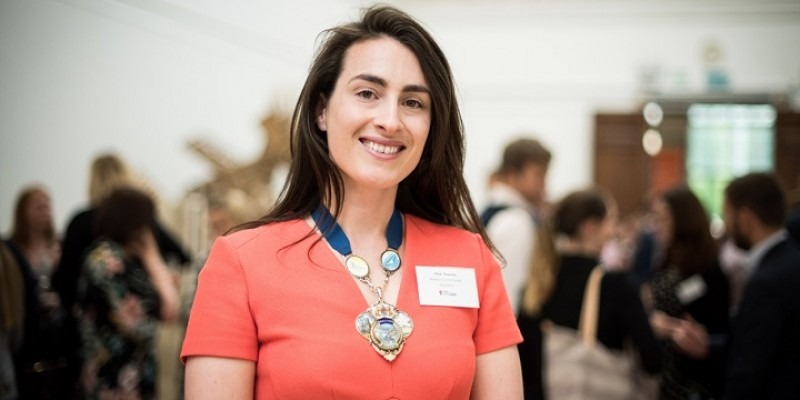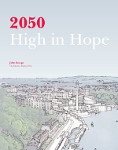
As part of the Initiative’s efforts to build on the vision articulated in 2050: High in Hope, we are asking members to consider how we can create a sustainable and inclusive city. At our June Initiative evening, we spoke to Alice Peacock, President of Bristol Junior Chamber to get her perspective.
Tell us a little about yourself; your job role and your career background?
I am the President of Bristol Junior Chamber (BJC), which is a networking organisation for those under the age of 40. The BJC was founded in 1948 and has a long history of promoting Bristol and the professional/personal development of its members.
The role is an elected position, held for 1 year, which delivers a range of events and activities for the 150+ strong membership. The President works alongside the Council of Management to provide opportunities for the members to further their knowledge and interest in all manner of topics, and also volunteer with young people across the city to provide development opportunity for others.
Tell us about your business and your vision as a company?
The organisation has a rooted foundation within Business West, acting as the junior counterpart. The BJC is run by the Council of Management, on behalf of the members, and is ably supported by a number of Honorary Vice-Presidents and the former Presidents (over 70 years of heritage!).
The aims of the Bristol Junior Chamber are to promote and encourage the furthering of the city, and the businesses within it – ultimately to grow and expand the BJC membership in both numbers and experience.
The specific target of young professionals with these aims puts a spotlight on encouraging cross-industry networking, sharing of skills and development both personally and professionally.
The vision is to build upon the BJC’s success to date, for it to progress as a powerful resource for both its young professional members and also the city as a whole (we regularly get involved with activities/events, provide comment on issues/topics, and volunteer with young people across the city region).
The more the BJC grows and strengthens, the further we can expand our network and support to those around us.
What might a sustainable and inclusive city look like?
A sustainable and inclusive city would allow for people to have equal prospects made available to them by way of education, development opportunity and access to resource. A key aim of the BJC is to support those without such equality of access, at formative stages of their educational and professional careers.
The benefits that education and self-confidence provide allows for those with potential to develop into integrated members of a cohesive society, being productive members of that society and providing sustainable growth.
It is important to remember that mental and societal health is – not only a personal benefit – but also an economic one. It is for the good of the economy and our ability to grow that we have strong and positive communities.
In your view, what do we need to do to get there?
The challenging of inequalities that we come across, especially the inequalities of opportunity, is a straightforward and dynamic way of providing support to those within society that would otherwise be unseen.
The continued conversation, sharing of skills and monitoring findings between organisations working in the city should be facilitated and built upon. This is the case for everything, from responsibility for our environment, improving transport and town planning, providing support and strength of purpose to schools and youth clubs.
The more we can showcase care of our wider environment, our local spaces, better transport, better access to facilities and people being more empowered and confident to seek opportunity, the better off we will make this city with both sustainability and also inclusivity.
Much of the ability to share/converse between industries and sectors will be facilitated by technology and the processing of data, and the management and delivery of this is a core action for a future which will support and enable high volumes of people.
What steps can the business community take to get there?
The conversation should not be limited to charities, CICs and voluntary groups – it should be the responsibility of all individuals, and the organisations they are within (big business or otherwise) to champion and support all people with inclusivity and sustainability at its core.
Business should not be afraid to speak up, and make change, to leave this space better than it was before. That is the true way to build, grow and ultimately profit – in a sustainable fashion, rather than (in a lifetime sense) short term wins.
- Log in to post comments

